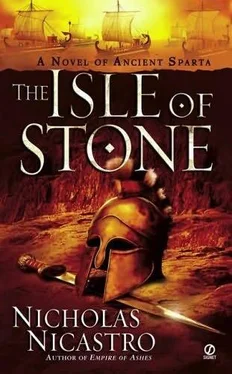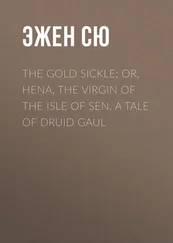Nicholas Nicastro - The Isle of Stone
Здесь есть возможность читать онлайн «Nicholas Nicastro - The Isle of Stone» весь текст электронной книги совершенно бесплатно (целиком полную версию без сокращений). В некоторых случаях можно слушать аудио, скачать через торрент в формате fb2 и присутствует краткое содержание. Жанр: Исторические приключения, на английском языке. Описание произведения, (предисловие) а так же отзывы посетителей доступны на портале библиотеки ЛибКат.
- Название:The Isle of Stone
- Автор:
- Жанр:
- Год:неизвестен
- ISBN:нет данных
- Рейтинг книги:4 / 5. Голосов: 1
-
Избранное:Добавить в избранное
- Отзывы:
-
Ваша оценка:
- 80
- 1
- 2
- 3
- 4
- 5
The Isle of Stone: краткое содержание, описание и аннотация
Предлагаем к чтению аннотацию, описание, краткое содержание или предисловие (зависит от того, что написал сам автор книги «The Isle of Stone»). Если вы не нашли необходимую информацию о книге — напишите в комментариях, мы постараемся отыскать её.
The Isle of Stone — читать онлайн бесплатно полную книгу (весь текст) целиком
Ниже представлен текст книги, разбитый по страницам. Система сохранения места последней прочитанной страницы, позволяет с удобством читать онлайн бесплатно книгу «The Isle of Stone», без необходимости каждый раз заново искать на чём Вы остановились. Поставьте закладку, и сможете в любой момент перейти на страницу, на которой закончили чтение.
Интервал:
Закладка:
The mother of the heroic dead was expected to reflect the magnitude of her good fortune. She displayed the remains of her son, anointed with imported oil, dressed in a linen chiton of purest white, on a flowered bier in the men’s quarters of her house. For two days Damatria sat next to him in a condition of carefully arranged dishevelment: fingers stripped of all but one fine gold ring, ashes demurely scattered in her finely combed hair, a single picturesque scratch scoring her alabaster cheek. The male relatives of Dorcis came to her in cheerful procession, bearing congratulations. Their wives and daughters came in somewhat smaller numbers, but with plates of honey cake, making the customary pleas for the bereaved to eat, to sustain herself. At the proper intervals, and with conspicuous preliminaries (for she loved this part), Damatria would let loose a piteous shriek. The guests would stand around her, admiring the perfection of her mourning, looking as if they might burst into applause. On the last day even Dorcis was carted into public view for the first time in years-fatter, as helpless as ever, but beaming in the reflected glory of his son-in-law’s honor.
Two hours before dawn of the third day, they carried Epitadas out the door, feet first. The cortege lined up behind the wagon carrying the bier, with the relatives walking behind Damatria and the helot mourners and flute players going last. The streets were more than typically full at that hour: it was well known in the city that the only hero of Sphacteria would be honored that morning. As the retinue passed and the pipers played, soldiers stood and saluted; from the road around the base of the Acropolis, Damatria saw the caretakers dim the lamps of the Brazen House.
The pyre flared to its full magnificence just as the sun rose over Parnes. Curiously, it was at that point, as the body neared consumption and the flames began to wane, that Damatria felt her first stab of genuine grief. For the burial ground was one of the places where she had met her son in secret, during his first years in the Rearing, to deliver him extra food. She would see him in the twilight, stepping out of the forest and wearing nothing but grime and a ravenous look on his face; he would make no greeting as he snatched the bread from her hands, his hunger as elementary as a newborn baby’s. The tracks of real tears creased her soot-caked cheeks as they wrapped his bones in his chiton, and the last libation was poured on the ground. They buried the remains under a handsome marble stone she had commissioned in his honor. Unlike most of the other stelae around it, his grave bore a personal inscription:????????.
By consensus it was the finest funeral seen in Laconia for some years. Though there was some concern that Damatria’s ostentatious ways would spoil the event, her taste this time was impeccable, her conduct beyond reproach. She gave all the requisite feasts on the third and thirteenth days after the ceremony. Best of all, she did not embarrass the Spartans by breathing the name of her other son.
Epitadas was held exempt from the general decree that stripped the capitulators of Sphacteria of their status as Spartiates. The prisoners in Athens, who were now publicly known as “tremblers,” were denounced in absentia by their dining clubs. If they ever returned from their captivity they would find their legal rights to land and helots curtailed. Those they left behind in the city, such as wives and daughters, were no longer welcome to participate in the festival choruses, or become betrothed to boys of respectable families. The trembler and his family were required to give way to other pedestrians in the streets, and forbidden to wear bright or conspicuous clothes. That a trembler or his wife would smile or otherwise show good humor in public was inconceivable, for such a miserable fate could leave them nothing to be happy about.
With the prisoners on their way to captivity, little came back to Sparta about the circumstances of the disaster. At some point Cleon and Demosthenes would testify before the Assembly, of whose deliberations the Peloponnesians received regular reports from their paid informants. Until then, gossips spoke of an uncoded message sent to Antalcidas from Zeuxippos, regarding the existence of an unborn son. Zeuxippos’ rivals among the Spit Companions brought the story up at the mess, hinting that the message might explain the surrender of his former protege.
The old man rose from his bench, and with an expression more sad than indignant, said, “Gentlemen, if you wish to suggest that I would do anything to make the boy behave disgracefully, I believe you already have my answer. The message was sent out of compassion for the wife, who wished to reassure her husband that his line would live on, regardless of what Fortune had in store for him.
“For my own part, it pains me to know that I will not live long enough to learn what really happened on the island. But I am more troubled to see the direction of this discussion, which seems designed to blacken the name of a young man who has been noted for his fighting skill. In the past, it was the virtue of the Lacedaemonians not to assassinate without cause the characters of decent men. I see now that I no longer live in the city I once loved. And so, for the first time in a half century, I must surrender my spot on this board-the one I remind you was once occupied by Eudamos, son of Styphon, who died with Leonidas at Thermopylae. Good night.”
With that, Zeuxippos removed his chiton and overcloak, left his staff leaning against the wall, and strode out of the mess wearing nothing but a breechcloth. Later, a helot reported seeing a bony figure walking into the forest, toward the moonlit wall of Taygetus. The old man was never seen alive again.
3
Though she dreaded it, Andreia was prepared for word of her husband’s death. But what was she to do with news that he was a prisoner?
The helots were removed from her household the day after the Gerousia demoted Antalcidas. She was eight months pregnant and already quite large; being reluctant to leave Melitta alone in the house, she fretted over what to do with the child when she went to the springhouse or on market days. But the girl, who was perceptive beyond her few years, laid a small hand on her mother’s arm and begged, “Let me carry too!”
At the market, Andreia felt a sharp plunge in the social temperature. She overheard snatches of whispered conversation around her-phrases like “poor Thibron,” “he stole the credit from Praxitas,” and, of course, the epithet Antalcidas’ own mother had once used against him, “the shame of Sparta.” Some voices were less subtle: under-thirties felt license to murmur lewd insults as they passed, and her bread-seller made her burn with humiliation by proclaiming, loudly enough for all to hear, that he didn’t sell to the families of tremblers.
She wrote to her father for advice. Ramphias, who usually replied to her letters in rapid order, took a week to respond, and then only by sending her two of his own helots to keep her house. “Has he given you any message for me?” she asked them. The helots shook their heads.
Her consignment to oblivion took time to sink in, and had a curious effect when it did. For all her years she had looked with ambivalence at her membership in the community. To be a Spartan seemed something petty, parochial. Of her fellow Lacedaemonians, her feelings had always been divided between pity and contempt; when she learned of the civilized pursuits of Athens or Thebes, she was convinced that she was literally mislaid by Fortune-born into a tribe for which she was not intended. Antalcidas, who accepted her as she was, would listen to her opinions and look at her as if she had dropped out of the sky. Would it ever occur to him to feel so detached from his people? She thought not.
Читать дальшеИнтервал:
Закладка:
Похожие книги на «The Isle of Stone»
Представляем Вашему вниманию похожие книги на «The Isle of Stone» списком для выбора. Мы отобрали схожую по названию и смыслу литературу в надежде предоставить читателям больше вариантов отыскать новые, интересные, ещё непрочитанные произведения.
Обсуждение, отзывы о книге «The Isle of Stone» и просто собственные мнения читателей. Оставьте ваши комментарии, напишите, что Вы думаете о произведении, его смысле или главных героях. Укажите что конкретно понравилось, а что нет, и почему Вы так считаете.










![Nicholas Timmins - The Five Giants [New Edition] - A Biography of the Welfare State](/books/701739/nicholas-timmins-the-five-giants-new-edition-a-thumb.webp)

